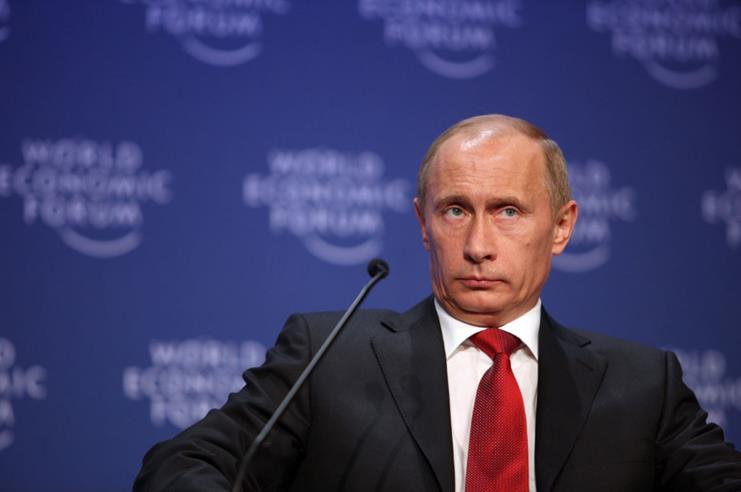The reincarnation of Hitler in some national leader and the heroism of Churchill, both stand-by props of neoconservatives, rear their head again in a recent commentary by Daniel Gelernter.
Expecting neocons to abandon their continual reference of these props would be comparable to asking the Democratic Party to stop talking about “systemic racism” or Mike Pompeo to cease mentioning “our values.” Why give up rhetorical tricks that elicit applause and large checks from wealthy sponsors every time one makes use of them? But as I point out in my book on antifascism, those who engage in silly comparisons shouldn’t imagine that the weight of historical scholarship supports their games.
Gelernter gets giddy pulling out his exaggerated, anachronistic parallels between Putin “the murderer” and the evil Führer, the expanding Japanese empire between 1936 and 1941 and the present Chinese government. His description suggests that we are again thickly embroiled in the Second World War, with only the names of the villains having been changed to reflect the minimally altered circumstances. Munich in October 1938 comes back as another neocon reference point in Gelernter’s complaint that we have not armed ourselves to the teeth to combat the new Hitler. Any failure to be immediately ready for war against the neocon-designated enemy brings back memories (at least for Gelernter and his buds) of how “democracies” surrendered to Hitler’s demand to occupy the Czech Sudetenland in 1938.
Allow me to cite what may be Gelernter’s most lunatic statement in this trip down neocon memory lane:
Now imagine that you are Putin himself—a dictator, a murderer, an absolutely brilliant strategist. What would be your next move? Probably to invade one of the Baltic states to break up NATO. In theory, an attack on any NATO member should be treated as an attack on all. But if Putin senses that there will be no response, or a half-response reminiscent of the so-called Phony War, he can destroy the major barrier against Russia taking over Eastern Europe one country at a time. And the sad fact is that if we, in America, are not willing to go to war to protect Estonia from Russia—and I suspect most of us are not—then Europe and ultimately the entire West is at risk.
Here we are dealing not only with the return of Hitler in the person of Putin and the revival of Imperial Japan as the Chicom regime. We must also confront the likelihood that the “entire West is at risk” if a single Russian soldier crosses into Estonian territory. Where, Gelernter asks by implication, is the new Churchill, who will lead our armies to victory, if Nazi Russia decides to occupy Estonia? This, after all, is the greatest threat that now supposedly faces “the entire West.”
One might of course dispute this judgment and point to other far grimmer threats that now confront Western civilization. Like Thucydides and Aristotle, we might be led to the non-neocon conclusion that the greatest threats to governments or societies come from within.
That certainly applies to the Western world and to our own onetime country, which are in the grips of an ugly cultural and political war. Pardon me if I’m more concerned about preserving traditional gender roles or something resembling the family that I grew up in than I am with the Russian bête noire of such worthies as Gelernter, Rep. Eric Swalwell, and journalist Jake Tapper!
Unlike our president, vice president, Secretary of Defense, and “woke” military command, Putin has some noticeably redeeming features. He thinks marriage should be exclusively between heterosexuals, that males and females differ in socially significant biological ways, and that white people are not inherently evil. Believing and defending such politically inconvenient truths may be necessary for saving “the entire West.” It might be even more useful for this purpose than trying to relive the Second World War by taking on Russia and China.
We might also draw a distinction between predatory regimes like Nazi Germany and Stalin’s Russia—that romped all over the European continent exterminating indigenous populations—and today’s Russia and China, which are asserting traditional national interests. The latter can certainly create trouble, and I am not suggesting that no measures be taken if the Russian government tries to increase its control over Ukraine or if the Chinese government bullies Taiwan more aggressively. But even those aggressive actions would still not be of the same magnitude as Hitler’s armies overrunning Poland and France and murdering millions of their civilian population. Nothing indicates that Putin is about to do anything even remotely as brutal.
Nor is anyone denying that the Chinese government has treated ethnic minorities, particularly the Uyghurs in East Turkestan, quite brutally. We are therefore right to protest such inhumanities and put economic and diplomatic pressures on the Chinese to stop these misdeeds. But the appropriate measures called for in these cases fall far short of the total mobilization required to fight Nazi Germany and Imperial Japan in World War II.
What I’m recommending is a more sober assessment of the relative dangers that face our society. The war led by the state, the educational establishment, the media, large segments of corporate capitalism, and now the military against normal America seems far more pernicious than any danger that is coming out of Russia or China. We need a strategy for combatting the internal enemy far more desperately than we need more arms for fighting our foreign competitors.
Image Credit:
Flickr-World Economic Forum, CC BY-NC-SA 2.0

Leave a Reply